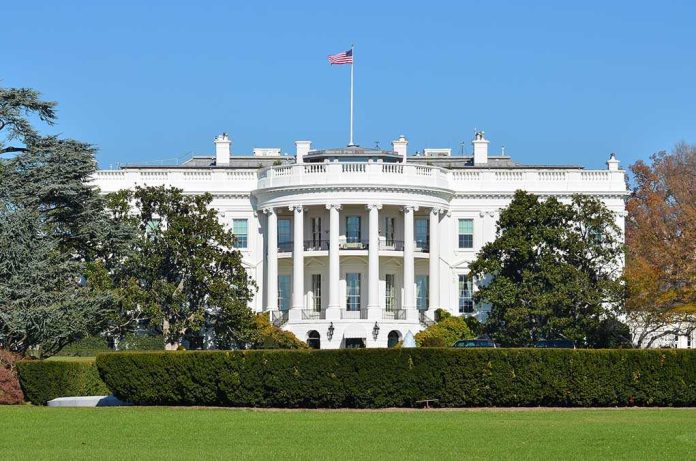
A democratic socialist who spent months calling the president a fascist just walked out of the White House with a handshake, a smile, and something far more valuable: leverage.
Quick Take
- Zohran Mamdani transformed from political outsider to New York City power broker in months by mastering the art of strategic pragmatism
- After winning the mayoral election as the city’s first Muslim and South Asian mayor, Mamdani pivoted from public antagonism toward Trump to a calculated White House meeting
- The surprise détente positioned Mamdani as a dealmaker capable of securing federal cooperation on affordability and funding for New York
- Political observers describe the rapid reconciliation as historically unusual and potentially precedent-setting for urban leaders navigating federal-local tensions
From Outsider to Insider in One Election Cycle
Zohran Mamdani’s political ascent defies conventional wisdom about how power works in American cities. Six months ago, he was a democratic socialist state assembly member dismissed by establishment gatekeepers as a one-hit wonder destined for the political margins. His mayoral campaign was pure fire and brimstone: he labeled Trump a despot and fascist, promised radical reform on housing and affordability, and mobilized grassroots voters tired of incremental politics. Trump responded with equal venom, calling Mamdani a communist lunatic and threatening punitive federal action if he won. The stage seemed set for permanent conflict.
Then something unexpected happened. New York voters chose Mamdani, making him the city’s first Muslim and South Asian mayor. The mandate was clear: voters wanted disruption, not compromise. Yet within weeks of his victory, Mamdani executed a political maneuver that separated him from typical outsiders. He didn’t double down on confrontation. Instead, he recognized that wielding actual power required something more sophisticated than rhetorical purity.
The White House Meeting That Changed Everything
In late November, Mamdani and Trump met at the White House. The optics alone were stunning: two men who had exchanged public insults weeks earlier, now photographed shaking hands and discussing cooperation. Both leaders emerged claiming unexpected areas of agreement. Trump stated they shared more common ground than anticipated. Mamdani emphasized the need for collaboration on federal funding and affordability—the very issues that had animated his campaign. The meeting signaled something unprecedented: a rapid reconciliation between adversaries, driven not by capitulation but by mutual recognition of shared interests.
Political analyst Ross Barkan described the encounter as remarkable, crediting Mamdani’s coalition-building skills and personal charisma for orchestrating the shift. What appeared to some as a flip-flop was actually sophisticated political theater. Mamdani had calculated that direct federal antagonism threatened New York’s budget and social programs far more than pragmatic engagement could. He also recognized that Trump, despite his rhetoric, responds to negotiators willing to engage rather than ideological opponents committed to permanent opposition.
The Tactical Genius Behind the Pivot
Mamdani’s approach reveals an uncomfortable truth about power that ideological purists often miss: leverage comes from making yourself indispensable to your adversary’s interests. By positioning himself as a dealmaker rather than a perpetual antagonist, Mamdani transformed New York’s relationship with the federal government from one of threatened punishment to one of potential cooperation. Trump gets credit for being reasonable with a political opponent. Mamdani gets federal support for his city. Both sides claim victory.
This strategy carries genuine risk. Progressive elements of Mamdani’s base viewed the White House meeting as betrayal, questioning whether he had abandoned his principles for political expediency. Conservative critics accused Trump of being played by a socialist operative. Yet results matter more than ideological consistency to voters struggling with rent and basic services. If Mamdani’s pragmatism delivers federal funding and reduces threats of National Guard deployment, his coalition-building approach becomes harder to criticize on the ground level.
What This Means for Urban Politics Going Forward
Mamdani’s rapid transformation from outsider to power player potentially establishes a new model for urban leaders navigating federal-local tensions. The traditional playbook—permanent opposition or complete capitulation—appears increasingly obsolete. Instead, Mamdani demonstrates that strategic engagement across ideological divides, coupled with genuine leverage from local mandates, can produce tangible results. Other cities facing federal antagonism are watching closely, wondering if similar approaches might work in their contexts.
The durability of the Trump-Mamdani détente remains uncertain. Policy disagreements will inevitably re-emerge. Trump’s history of using federal power to punish political adversaries suggests the current warmth could evaporate quickly if Mamdani challenges presidential priorities. Yet for now, Mamdani has achieved something rare: he’s made himself politically relevant not despite his outsider status, but because of it. He promised New Yorkers he would fight for their interests. He’s doing exactly that—just not in the way his critics expected.
Sources:
Democracy Now! – Mamdani Trump Friendly White House Meeting
Lohud – Trump and Mamdani Surprising White House Meeting
Politico – Trump Mamdani Security Clearance



